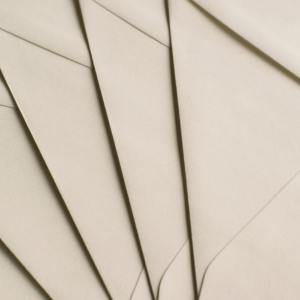Pushback: Canadian power play abetted by state aims

Al Norman
| Published: 03-19-2024 7:01 PM |
Our rural Franklin County landscape has attracted large energy companies — from Tenneco in the 1970s to FirstLight today — seeking to own our woods and rivers to make electric power. Each of these corporations has green-washed their mission. FirstLight says it owns “hundreds of miles of shoreline along some of the most beautiful rivers and lakes in North America,” including major power facilities in Franklin county.
FirstLight was created in 2006 by a New Jersey investment firm, Energy Capital Partners (ECP), which sold it to a North American subsidiary of the French GDF Suez in 2008, which sold it to the Canadian Public Sector Pension Investment Board (PSP) in 2016. PSP invests the savings of public pensioners in Canada. Their pension funds are underwriting plans like the lithium-ion battery energy storage system (BESS) being fought in Wendell. FirstLight has created a strategic partnership with a company called New Leaf to develop battery projects.
New Leaf created the Wendell Energy Storage 1, LLC, and filed a petition with the Massachusetts Department of Public Utilities (DPU) to override all local zoning laws to build a huge, 105 megawatt lithium-ion BESS on 11 acres of mostly woodlot in Wendell. New Leaf was created in 2022 by ECP, the same company that created FirstLight 16 years earlier. First Light acquired 15 power plants of mostly hydro generating capacity, including the 1,168 megawatt Northfield Mountain pump hydro storage facility. FirstLight wants to “accelerate the decarbonization of the electric grid,” and last month, FirstLight acquired 10 hydropower stations in Canada.
PSP, another Canadian investor, was founded in 1999, and is one of Canada’s largest pension investment managers. It invests funds from the Canadian Forces, and the Royal Mounted Police and the Reserve Force. FirstLight (PSP owned) has entered into an agreement with New Leaf (ECP owned), to build a battery storage project in Preston, Connecticut, but its only 1/6th (17 megawatts) the size of the Wendell battery project. FirstLight and PSP are the Canadian power players.
Massachusetts government is also twisting arms for battery projects. Seven months ago, Governor Maura Healey created a temporary Commission on Energy Infrastructure Siting and Permitting (CEISP), to clear-cut local zoning, seen as the “major obstacle” facing energy developers. The commission is mandated to build energy infrastructure “in a responsible manner, which is protective of natural and working lands … while ensuring that communities have adequate input into the siting and permitting processes.” At two listening sessions in early March, the commission heard residents across the state criticize the CEISP as a power grab by the state to sweep local communities aside. Activists said local zoning is the “adequate input” they need but the governor’s plan treats municipalities as a problem, not a partner.
I presented the commission with the following siting reforms: 1. Eliminate “protected” status for PV and battery storage to make them adhere to local zoning bylaws. 2. Create an “intervention fund” so local communities can challenge an energy siting decision before state regulators. The cost of legal and technical experts can easily exceed $100,000. 3. Promulgate enhanced fire safety code regulations like ones being vetted in New York State: industry-funded independent peer reviews for all projects; creating BESS design requirements for what constitutes a “passable” system; requiring qualified emergency fire responders to support local fire departments; prohibiting BESS from locating on forest land.
The federal government is developing “virtual power plants” aggregated rooftop solar/home storage batteries to collect and store energy for sale back to the grid instead of industrial utility-scale batteries. We should require new and existing private commercial and industrial buildings to have a rooftop or ground mounted PV installation — or demonstrate why such PV is not-feasible.
Wendell residents are not seeking “complete prohibition” of stand-alone battery storage, just putting a size limit on utility-scale projects. Towns like Wendell, Carver and Shutesbury are pushing back on unstable lithium-ion technology. They want enhanced energy conservation first, not just chasing higher and higher “peak power” capacity.
Article continues after...
Yesterday's Most Read Articles
 Fogbuster Coffee Works, formerly Pierce Brothers, celebrating 30 years in business
Fogbuster Coffee Works, formerly Pierce Brothers, celebrating 30 years in business
 Real Estate Transactions: May 3, 2024
Real Estate Transactions: May 3, 2024
 Greenfield homicide victim to be memorialized in Pittsfield
Greenfield homicide victim to be memorialized in Pittsfield
 Softball: Franklin Tech pulls away from Hopkins, 8-3 (PHOTOS)
Softball: Franklin Tech pulls away from Hopkins, 8-3 (PHOTOS)
 As I See It: Between Israel and Palestine: Which side should we be on, and why?
As I See It: Between Israel and Palestine: Which side should we be on, and why?
 Bridge of Flowers in Shelburne Falls to open on plant sale day, May 11
Bridge of Flowers in Shelburne Falls to open on plant sale day, May 11
Legislation on Beacon Hill would stop Canadian investors from overpowering local zoning, by removing solar panels/battery storage projects from “protected” zoning status. Call the State House switchboard at 617-722-2000. Tell your state representative and state senator: “Energy siting & permitting should be a local power. Pass S. 1319 and H. 2082 to make local zoning a powerful form of home rule.
No Assault & Batteries continues to work with the Wendell Selectboard to ensure that energy permitting brings “power to the people” in a safe, responsible way.
Al Norman’s Pushback column appears twice monthly in the Recorder. He is a member of the group No Assault & Batteries.

 Guest columnist Gene Stamell: We know what we know
Guest columnist Gene Stamell: We know what we know Michelle Caruso: Questions candidate’s judgment after 1980s police training incident
Michelle Caruso: Questions candidate’s judgment after 1980s police training incident Kathy Sylvester: Vote for expertise on May 6
Kathy Sylvester: Vote for expertise on May 6 Shirley and Mike Majewski: Vote for Blake Gilmore
Shirley and Mike Majewski: Vote for Blake Gilmore
